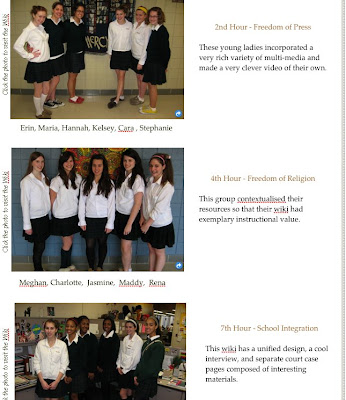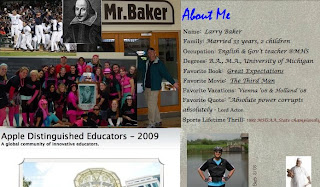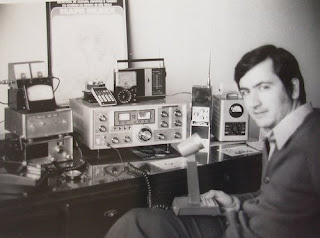 I believe that political, business, and educational leaders should be advocating bold, broad strokes of policy change during this time of great economic stress. The alternative may be death by a thousand cuts to vital institutions. For tuition funded schools like mine this moment could be an opportunity for developing a revolutionary educational model that will prepare our graduates and the school itself to engage with the brave new world that emerges from this global economic convulsion.
I believe that political, business, and educational leaders should be advocating bold, broad strokes of policy change during this time of great economic stress. The alternative may be death by a thousand cuts to vital institutions. For tuition funded schools like mine this moment could be an opportunity for developing a revolutionary educational model that will prepare our graduates and the school itself to engage with the brave new world that emerges from this global economic convulsion.This is no time for educators to cling to the American industrial model of education with its grades, final exams, "departments", lectures, "contact time", term papers, etc. The idea of learning revolving around "subjects" has already become as anachronistic as requiring 21st Century students to do all their research in a library, or the assumption that all important student learning takes place in a school building on a school's schedule. Our nation's future economic prosperity will require citizens who can think critically, problem solve, effectively collaborate, adopt the language of new ideas, and employ new technologies that mutate at ever more rapid speeds. the old model will not provide this need.
I have been examining the "leapfrog paradigm" that the The University of Minnesota has embraced to achieve a "Minnesota Miracle' which would radically transform its undergraduate school into one of the best in the world. The project currently exists in the form as a wiki where all stakeholders can contribute to change. I was startled by the general resemblance between Minnesota's call for action and the school culture projects I recommended in my Staff Development proposal. Of course the Minnesota plan was exceedingly more sophisticated and detailed than my fumblings, but still, when I read the the challenges articulated by Arthur Harkins and John Moravec, I mentally substituted my school (MHS) for U. of Minnesota:
- Can MHS shift from industrial/information-age models of human capital preparation to knowledge/innovation models?
- Can MHS seriously focus on recognizing and developing the uniqueness and variety of [students] through technology-supported, individualized learning services?
- Can the MHS focus more on student innovations as opposed to context-free testing and rigidly constrained paper topics?
- Can MHS become more experiential and experimental as it moves toward knowledge based, innovation-supportive learning services?
- Can MHS provide new subscription networking for its alumni, productively linking them to one another and to . . . students?
P.S. March 31 is the Special Olympics' "national day of awareness," a call to Americans to recognize and rethink their use of the word "retard," or as the organization would prefer, the "R-word." Consider clicking your moral support at their Change the Conversation site.
------------------------------------------------
"Escape from Fairy Tale Land" with kind permission of two very talented young photographers, nikki.jane & amina.be.free












